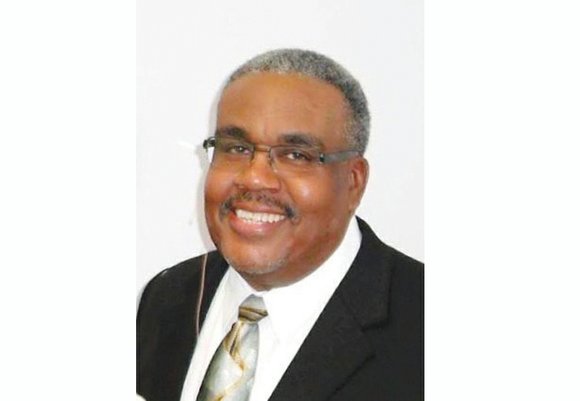Increase financial access
4/22/2016, 7:09 a.m.
Rev. David L. Chapman
Our nation has made great progress in the advancement of minorities. However, the current election cycle serves as a reminder of how far we have to go. National, state and local political races are prompting many to ask the simple question, “Will our next elected officials create more opportunity for Richmond’s African-American community or stifle the progress that already has been made?”
Access lies at the heart of opportunity and is the prerequisite for long-term, sustainable success. In my many years as a pastor, I have seen how access to fundamentals like education, employment and health care has empowered families to dramatically improve their life circumstances. I have also seen how a lack of access can sap families of resources and trap them in a cycle of poverty.
April marks Financial Literacy Month, a time to highlight the importance of financial literacy and to teach Americans how to establish and to maintain healthy financial habits. The need for such education is especially important in our local community.
Here in Richmond, more than 24 percent of households lack full access to the financial mainstream. Within our African-American community, this grows to more than 38 percent, according to the Federal Deposit Insurance Corporation (FDIC). These families have a limited relationship with a bank, or none at all, for a number of reasons. Some don’t live near a physical bank branch. Some struggle with limited or unpredictable income and are unable to maintain the minimum account balance. The FDIC found that education is also significant. Individuals without a high school diploma are far less likely to have a bank account than those with a college degree.
Financially underserved families pay an exorbitant proportion of their income on alternative financial services like check cashers, payday lenders and pawn shops. In fact, a report from the U.S. Postal Service’s Office of Inspector General indicates that these families can pay as much on interest and fees for these services as the average American family spends on food every year. While this issue is complex, there are steps we can take as a community to increase access for all.
Modern technology is delivering tools that can help the financially underserved manage their money, even in neighborhoods without banks. From prepaid debit cards to mobile apps, financially underserved communities now have more options to take control of their finances. Technologies that reduce cash reliance offer convenience, savings, buying power and security. These innovative tools mean no more waiting in line to cash a check or pay a bill. They mean access to goods and services via the Internet. They offer the ability to get money replaced if it is lost or stolen. Simply put, electronic payments give historically underrepresented communities power and choice.
The issue of financial inclusion is very important to me and to the more than 1,000 churches I serve in my ministry with the Baptist General Convention of Virginia. Many of our congregants are financially underserved and many of our churches are ill-equipped to securely collect, account and deposit tithes in an increasingly cashless world. One of the ways we are addressing this issue is by partnering with Master Your Card, a community empowerment program that helps underserved groups enter the mainstream economy. Through our involvement with the program, we have been able to provide education to our ministers on how to manage church finances more efficiently and be better equipped to support financially underserved families in their congregations.
True equality of access in our nation can be gauged simply by measuring inclusion in the marketplace. We have a responsibility as a community to reach the financially underserved with the tools and education they need to operate on the same playing field as everyone else.
The writer is a retired pastor, interim executive minister of the Baptist General Convention of Virginia and a member of the African-American Advisory Board of Master Your Card, a public education initiative created by MasterCard to help consumers with using prepaid, debit and credit cards to their advantage.






